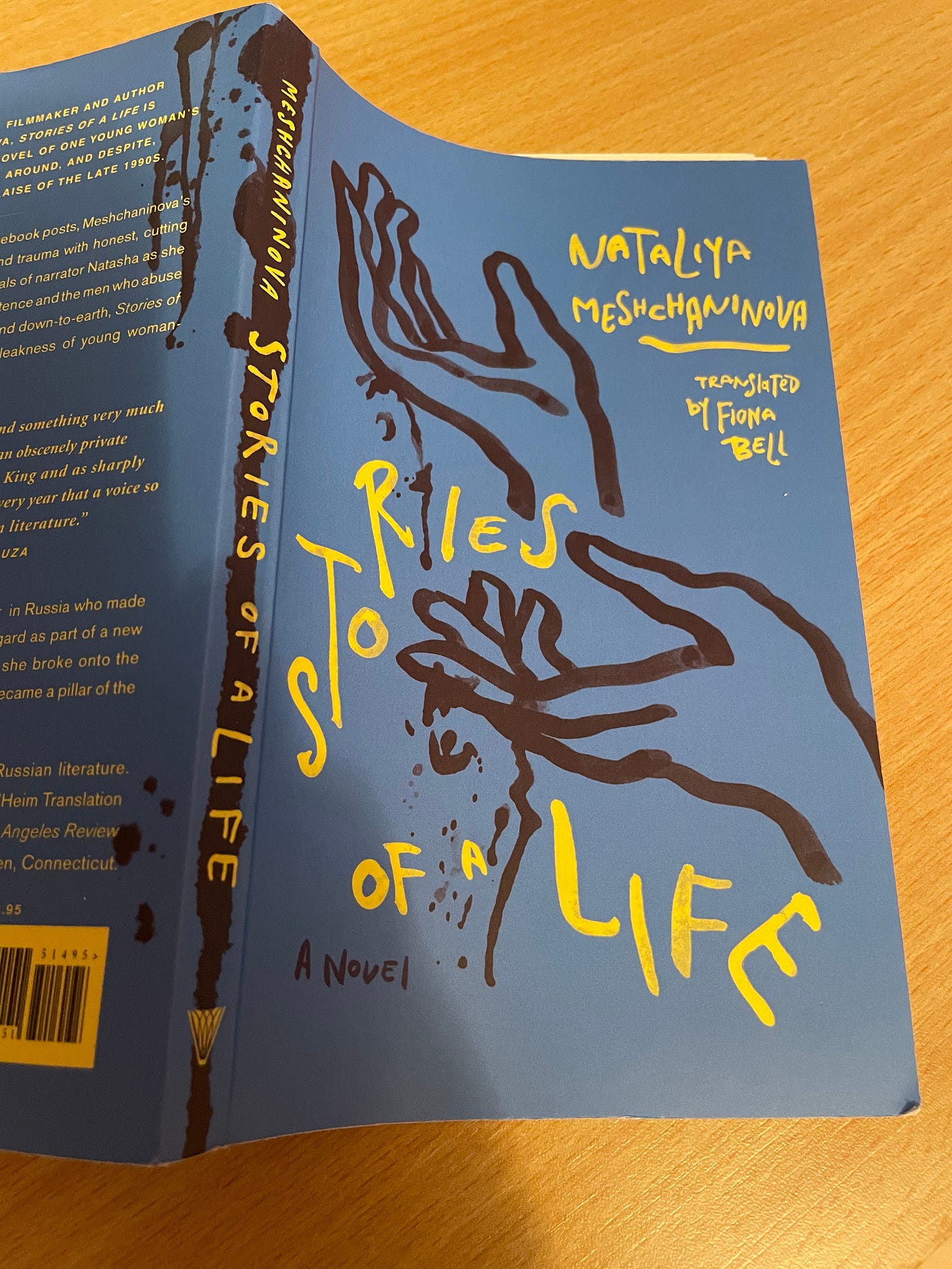THE STORIES OF OUR LIVES
This trenchant Russian novella by a filmmaker was a pillar of the #MeToo movement in Russia.
The only time I got to read during my twelve-day vacation in the mountain states was after I boarded the plane that ferried me back to California. The book I decided to carry with me on the trip was a mere 172 pages—Stories Of A Life written by Nataliya Meshchaninova in Russian—but it was hard to muster the focus and the energy to read and process the novella before my return yesterday.
Translated by Fiona Bell, Stories Of A Life was originally written as a series of viral Facebook posts. It’s raw and shocking, and portrays what it means to be a woman in post-Soviet Russia. I found the “memoir-novel”—all references to the book describe it thus—almost unbelievable in some passages. That being said, what seemed incredible often became credible as I thought a little more about the events in the story.
The characters in the story—with the exception of Uncle Sasha whose depravity simple cannot be condoned—are all molded by the prevarications skewing their early lives. “In my life there was a big evil grown-up who murdered my childhood: my mom’s second husband, my second stepfather. But I was too scared to write about him directly.”
With those words right at the beginning of the story, the protagonist sets the stage for a #MeToo tale that clearly sets out how women can
Stories Of A Life is a coming of age story of a young girl whose mother is prone to hysteria. The girl grows up in a home that’s shrouded in uncertainty and she is perennially worried about her mother’s state of mind.
“Never upset Mom—I learned that quickly. That’s why I became an expert at lying before I was even out of diapers. My lies didn’t stop her from worrying, but they did make me feel like I was guarding her, and my fear for her life receded a little.”
As she learns the truth of her own paternity, the girl continues to explain away her mother’s tendencies to manipulate men. “My fear of upsetting my mother was stronger than the truth, stronger than my own self-interest. My fear of losing her was paralyzing.”




